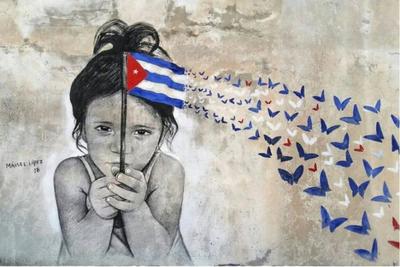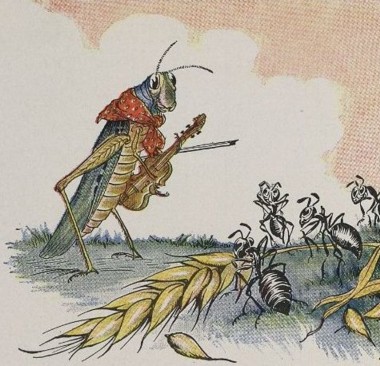Image: Maisel Lopez 2018 | Photo: Carlos Luque
Careful observers of the COVID-19 tragedy agree that the root cause of the present situation is the capitalist system, the pandemic of globalized economic interests.
Contemplating the painful global panorama as the pandemic advances seemingly unstoppable, claiming thousands of lives; unburied corpses on the street with no space in funeral homes or private cemeteries; forcing doctors to violate their oath and choose who will die; tens of thousands of workers idle, halting the senseless commercial frenzy that never appeared so alien to us;
and straining health systems to the point of collapse, it may not seem important to focus on what is happening in Cuba, a barely visible spot on the map, a small island that Hitler, they say, arrogantly erased with one stroke and dozens of U.S. administrations have attempted to drown in hunger and despair. But given the corporate media’s insistence on attempting to hide the obvious, and discount the recognition we have received, Cuba, for the sake of humanity, cannot remain silent.
Careful observers of the tragedy agree that the root cause of the present situation is not worldwide trading and consumption of wild animals, leading to zoonoses - the viral leap from nature to human beings - or overcrowding in industrial farming and the inherent overuse of antibiotics, antivirals and transgenic foods to prevent disease and increase the weight of pigs and poultry in search of greater profits. All of these are results, the last links in a chain.
The most lucid minds, committed to the facts and truth, insist that the fundamental cause is the capitalist economic system itself, the pandemic of globalized economic interests, the globalization of poverty, the greed of elites who demand austerity from the people and the usual liberalism, repeating endlessly that we have no alternative. Herein lies the explanation of the shameful implosion we are witnessing today in the richest, "model" countries of democracy. There is but one antidote to this deadly virus: rebellion and a civilizing socialist revolution.
At the same time, we are witnessing the apparent paradox that peoples and governments that have chosen to support systems and policies taking the difficult route of constructing a different economic, social and cultural model, are those which - unable to completely avoid the viral invasion given the tightly woven commercial and human fabric of our interconnected world - have taken action to combat the pandemic in a manner that differs significantly from the solutions neoliberal governments have attempted. The much-touted failure of socialism, of simply progressive, non-revolutionary governments, is collapsing today, along with lies about the mythical superiority of private property and the capacity of the market to respond to the most urgent human needs, and the most sacred of rights, the right to live.
Despite media lies that intoxicate naive readers and more astute ones, alike, Cuba has always enjoyed prestige and recognition. The strength of its moral example and capacity to resist - rooted in the ideas of our Mambi struggle for independence, of Martí and Fidel - has always prevailed over lies, aggression and material hardship. Unfortunately, and very painfully, yes, amidst such tragedy, Cuba’s image will ascend, to be seen from all points of the planet. Perhaps we need to list the reasons. Not in the spirit of foolish complacency at this dangerous time, amidst so much suffering, but because, if peoples want to rid themselves of exploiters, of murderous politicians, they must learn from the experience of those who have made the attempt and succeeded. May those who have eyes to see, see; and those who has ears to hear, hear.
When great thinkers are asked how long they prepared for the task undertaken, they reply, forever, all my life. Thus, Cuba has always armed itself with the minimum conditions necessary to implement a strategy to confront a disease such as this, allowing for such a different response, not only in advance of other countries in the region, but also with respect to nations that yesterday were the world’s colonial powers, with wealth that owes much to plunder, and are now unable to put themselves at the service of human beings, prostrated before material interests, and drowning in their own failures, to the pained, astonished amazement of the world. Cuba's advantage is systemic, of a cultural essence. The ultimate explanation lies in the nature of its way of life, its humanitarian policies, centered on human needs, life, and fundamental rights.
The speed with which our country moves from the rhythm of normal times - which, by the way, has never in more than 60 years enjoyed the normality of countries not under attack - to the effective management of emergencies, be they natural/climatic phenomena or epidemics, imported or not, is due, above all, to an institutional structure that is conceived to make a reality of an aspiration that emerged during the ancient cultural Renaissance, during the dawn of a capitalism that later betrayed it: true democracy, with human beings at the center.
Cuba’s best citizens also know how to be companions, in the etymological sense: those who eat the same bread and share material and spiritual goods in solidarity, to the degree they are able within an ocean of aggression and global inequality that forces the assumption of certain market mechanisms, the unwanted breeding ground of inequalities alien to the socialist project.
Our best sons and daughters, who show solidarity in daily life, assume sacrifice and resistance naturally, and although the inevitable diversity of different human destinies frustrates some and allows others to grow, the distinguishing characteristic of our daily functioning is solidarity with our neighbors, and with humanity. This is a profound reality only revealed in crises, usually unnoticed, invisible, in the grey of daily life.
The soulless individuals who today bury the pain they should feel for their own pettiness, and believe that only money can move Cuban doctors, are unable to assimilate that only an education of nobility sustained over time, and a social climate like Cuba’s, can generate attitudes that are not only personal, but take shape in the spirit of a nation. When our grandchildren clap their hands on balconies every night, to thank our healthcare workers, they also shout, "Long live Cuba," this is a seed that always germinates, from the innocence of the enthusiasm they see in their elders, who believe a better world is possible.
The first stone laid was literacy, reflecting Fidel's long view, and today Cuba can count on the immediate availability of skilled professionals, not only in the area of health, highly specialized and trained in responding to events of this type or similar to the one we now face.
Cuba does not suffer from the fragmentation and balkanization of the social fabric caused by the existence of opposing economic and political interests, with individuals and sectors asserting narrow self-interest in the political arena, but rather the natural existence of a diversity of human aspirations, some of which have been affected by capitalist culture now in ruins. This is what we recognize as unity, so indispensable to the majority social discipline that allows us to act as we do in the face of the pandemic, and precisely why it is attacked by our adversaries, because they know that herein lies the most solid of our principles. While elitist political cannibalism cannot be imposed in moments of crisis, unity comes through, providing the necessary social and political support to make coordinated action involving all possible.
The country's authorities’ condition as public servants is never more evident than in times like these. It is not necessary to defend our government or health leaders, unnecessarily citing their qualifications, when the facts speak for themselves. Unfortunately, today, given the voracity of the virus, we are witnessing the virulence of the capitalist system with the personification of irresponsibility, seen in the inability of its politicians to manage or alleviate the crisis.
Not all are as thick-headed and arrogant as the number one imperialist president, or as ignorant as some in the Latin American region, with their own armies stepping forward to save the system. But all fail as victims of the same monster they attempt to manage, and the privatized health care approach they defend prevents them from taking advantage of any political capital, lost to a reality of their own making.
Contrary to the stereotypes fabricated by the media machinery and those who reproduce them - either ignorantly or in a mercenary search for a few dollars - Cuba today offers a beacon of light and hope, and also an objective example of how necessary socialism is, which can be constructed in any corner of the planet. Peoples, who matter, are receiving, with our doctors, a message, a silent but effective statement. After bad weather, the seed bears fruit.
The collapse of what we once called the socialist world eroded, to a large extent, the hopes of those who, in good faith, were waiting for a possible alternative. In the field of ideas, an aversion to communist ideals emerged, used to legitimize the denial of alternatives and ignore the fact that another world is possible.
We are witnessing the reality that it will always be possible - and highly probable - that the same or worse than this pandemic will occur, if we do not rise up, once and for all, in a worldwide struggle for the only effective alternative, which, whether it be called socialism, or whatever younger generations may call it, must be decidedly anti-imperialist, anti-capitalist and anti-neoliberal. There is no possibility of capitalism with a human face. The pain and bitterness humanity is facing today is revealing the true face of Capital and the reason socialism exists.
Author
We urge those readers unfamiliar with it to visit Granma weekdays for a refreshing, uplifting perspective on both news and human nature. - Ed.
Artist
Misel Lopez makes the walls of the Buena Vista neighborhood of Havana come to life with wide-eyed portraits of neighborhood children, whom Marti called "the hope of the world".



